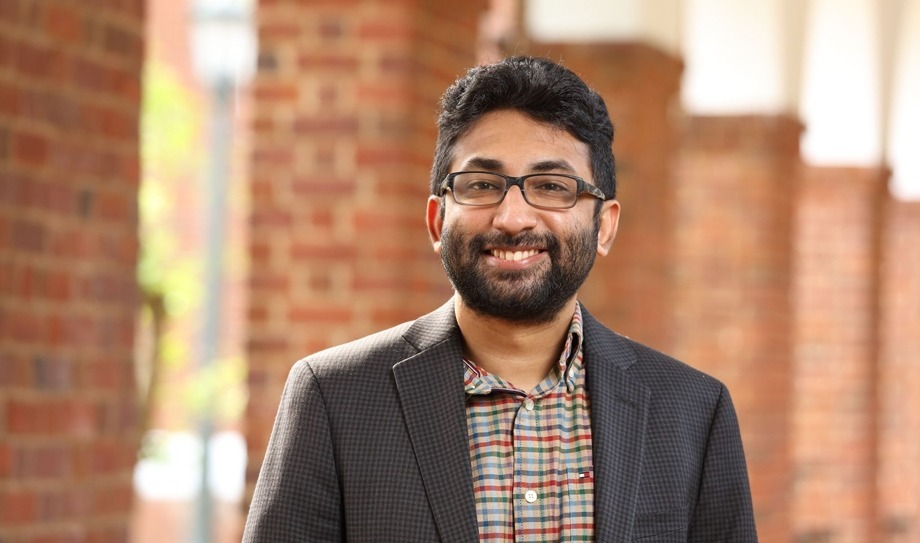UVA engineering researcher receives Career Award for a groundbreaking plan to defeat next big cyberattack

Dr. Ashish Venkat is developing a decoupled security response system to mitigate zero-day attacks faster and protect computer programs
Dr. Ashish Venkat, a researcher at UVA Engineering, has received the prestigious CAREER Award from the National Science Foundation for his innovative approach to combat the next major cyberattack. With the rise of zero-day attacks, which exploit previously unknown vulnerabilities and catch victims off guard, Dr. Venkat is determined to revolutionize cybersecurity defense.
The digital landscape is increasingly threatened by zero-day attacks, with a new attack discovered approximately every 17 days. These attacks pose significant challenges to cybersecurity experts, as developers have zero days to fix the flaw before it is exploited. The average response time to patch these vulnerabilities is 15 days, which leads to substantial costs for companies and individuals. Additionally, the process of patching these vulnerabilities often introduces new vulnerabilities, leaving systems exposed.
Dr. Venkat's solution aims to reduce attack response time and protect programs from emerging cyber threats. He plans to develop a "decoupled" security response system, combining hardware and software components to create a holistic security-centric stack. This approach will enable technicians to fix vulnerabilities promptly through a separate security entrance, even while the system is under attack.
By creating a dedicated security tunnel within the system, Dr. Venkat's decoupled approach ensures that technicians can rapidly locate and fix vulnerable components without opening new entry points for bad actors. With the implementation of this innovative solution, he aims to stop emerging zero-day cyberattacks within 24 to 48 hours, significantly faster than the current average response time. Moreover, Dr. Venkat's system could dramatically reduce the time and financial costs associated with frequent patching, redeployment, and hardware upgrades.
Sandhya Dwarkadas, the Walter N. Munster Professor and chair of computer science at UVA, expressed her excitement about Dr. Venkat's project, stating that "Ashish's proposed stack is an innovative use of integrated hardware and software components dedicated to security functions. His project addresses a critical need, and I look forward to following his progress."
In addition to his research, Dr. Venkat aims to improve cybersecurity curricula and awareness among high school, vocational, and college students. His team will establish a mentorship program for undergraduate students, including those traditionally underrepresented in engineering and computer science, contributing to the development of a skilled cybersecurity workforce for the future.
Dr. Venkat's innovative approach doesn't stop at cybersecurity defense; he is also using offensive tactics, known as ethical or "white hat" hacking. By ethically hacking systems, his team aims to identify potential vulnerabilities and strengthen the security of modern systems.
Dr. Venkat's previous research has gained significant attention, including the discovery of a security vulnerability that impacted millions of computers with Intel and AMD processors. His work on hardware Trojan attacks has also been nominated for a best paper award at the DATE 2023 conference.
Global threats such as the WannaCry ransomware attack in 2017 have highlighted the urgency of developing effective cybersecurity measures. Dr. Venkat emphasizes that these attacks can impact anyone, not just large corporations. Small businesses and individuals are also at risk, and the repercussions can be devastating.
Dr. Venkat's ultimate goal is to create cost-effective cybersecurity solutions that are accessible to individuals and small businesses alike. He believes that it is essential to design systems that prioritize security from the outset and to enhance the security of existing vulnerable systems.
In conclusion, Dr. Ashish Venkat's receipt of the CAREER Award recognizes his pioneering work in combating zero-day attacks and improving cybersecurity. With the development of his decoupled security response system, he aims to provide faster mitigation for emerging cyber threats while reducing costs and protecting vital computer programs. His dedication to building a skilled cybersecurity workforce and his use of ethical hacking tactics demonstrate his commitment to ensuring the safety and security of individuals and businesses in an increasingly digital world.

 How to resolve AdBlock issue?
How to resolve AdBlock issue?